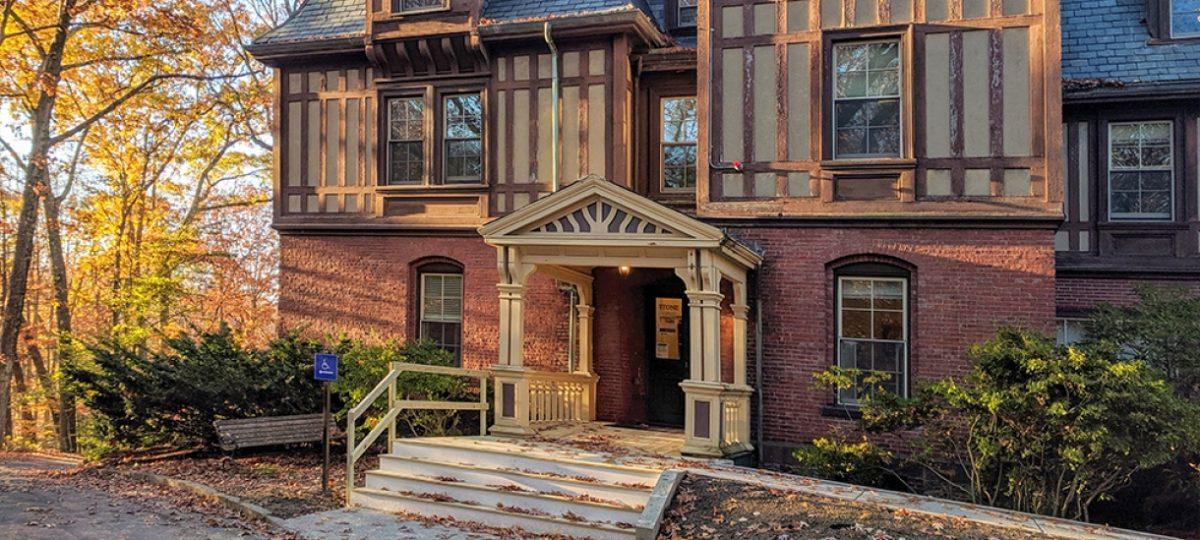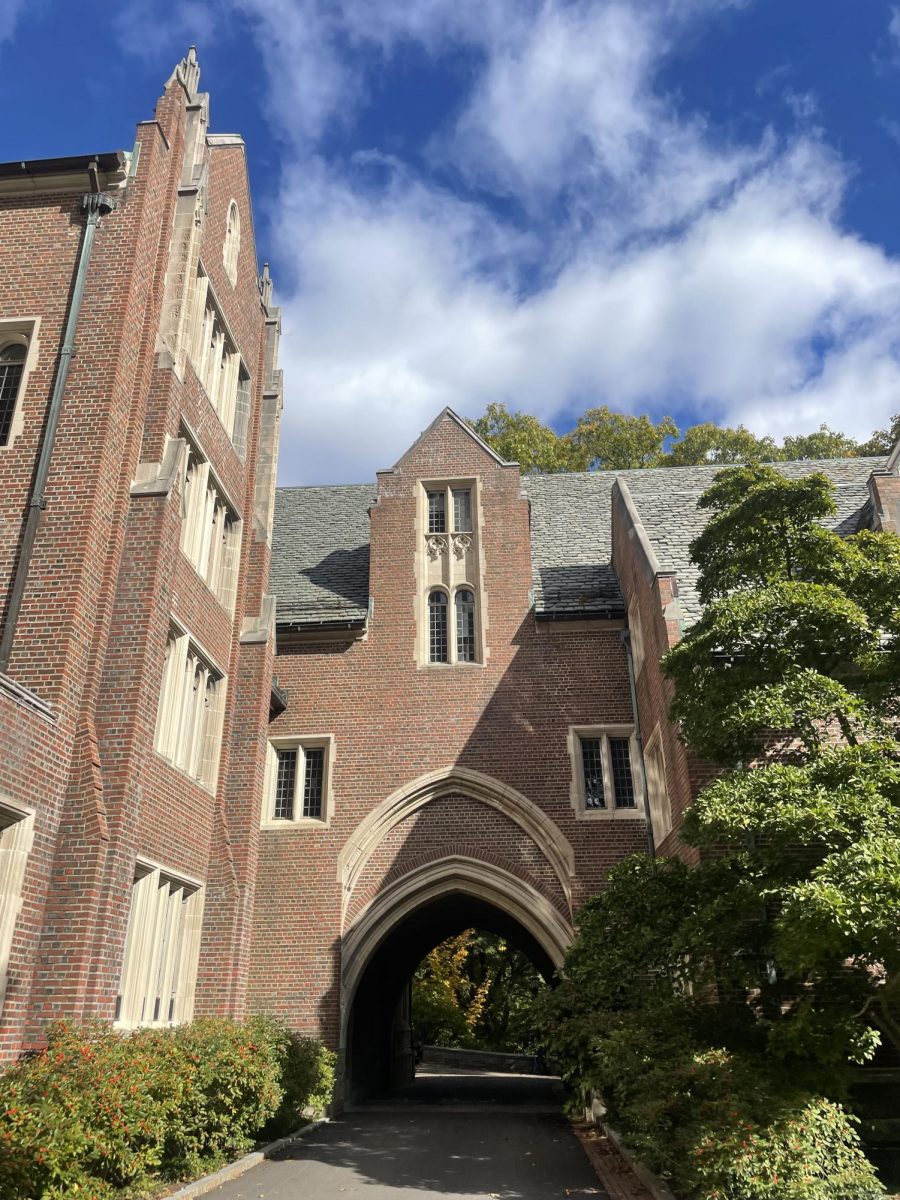On Friday, Nov. 13, Dean of Students Sheila Horton sent an email containing updates about current COVID-19 regulations at Wellesley. Changes included allowing two blockmates in a room while socially-distanced, meal blocks restricted to six people and opening dining halls for studying. A week prior, Dean Horton had also announced that kitchens would be open for one weeknight and one weekend community engagement shift per week.
“However, the results from our recent contact tracing and from our weekly community survey suggest that an increasing number of students are not following the health and safety guidelines as closely as they once were,” President Johnson said in an email preceding the Health and Safety Webinar on Oct. 29.
President Johnson then highlighted additional guidelines for students to follow, which included restrictions for off-campus activities, such as a restriction on traveling beyond the town of Wellesley for social engagements and a no-visitor policy on campus. Students on campus were given the option to return home for Thanksgiving break and complete the rest of the term remotely, though without a refund for room and board. According to President Johnson, students who violate these new guidelines would be asked to leave campus and continue their classes remotely for the remainder of the term.
Student Perspectives on Support Systems
For Rebecca Flunker ’24, adapting to college for the first time was challenging enough — but doing so during a pandemic was only an added stressor. Over the summer, Flunker depended on regular social interaction and physical contact to maintain her mental health, things that are not possible now on campus.
“I haven’t had any meaningful physical affection in so long, and that’s one of my top love languages,” Flunker said. “I’m touch-starved to a whole new level.”
Suzanna Schofield ’24 also found the adjustment difficult, in part due to the College policy of restricting student interactions, such as eating together, solely to blockmates. However, she did succeed in finding some social interaction with student organizations on campus.
“[My blockmates] are all introverted, and I’m very extroverted. I haven’t seen one of my blockmates in six [or seven] weeks,” Schofield said. “They’re assuming that you get along with your block and I do not hang out with mine. I think that’s been really difficult, because it’s added stress.”
Robin Chen ’21 agreed that the current social environment is not suited for everyone, especially as the weather is getting colder and more students are stuck inside.
“For students who are extroverted or students who need more social interaction for their mental health, this would be hell,” Chen said. “If you rely on your friends for support systems, I don’t know how well you would do here.”
Chen described campus life under COVID-19 as different in many aspects to the typical Wellesley experience.
“It makes me sad to remember the times where you could just like chill on campus and walk around with your friends or just … walk around without a mask on and show up to class or go to the academic hall, or El Table or Hoop — all the things that make Wellesley Wellesley,” Chen said.
Mental Health Resources
Given the isolating circumstances of COVID-19, the Stone Center has been offering individual teletherapy and remote group support to students on campus. To cope with feeling isolated from her peers and spending less quality time with her blockmates due to room restrictions, Ashley** has utilized the Stone Center for support and found the resource helpful.
“My counselor is the type to reach out to me,” said Ashley. “She’ll periodically check in on me if I don’t reach out to her [in a while].”
Flunker also had positive feedback regarding the Stone Center, but still had some reservations.
“I have actually been fortunate. I reached out to Stone Center … the first week I was here. I didn’t even wait, I knew that I needed therapy. I have to say my therapist has been really nice, she’s been helping me a lot, and I’m on Wellesley insurance. We’re in the process of trying to get a permanent therapist because the Stone Center is nice but not really made for long-term therapy,” said Flunker ‘24.
Flunker notes, however, that since the Stone Center is not designed for long-term therapy, the biweekly appointments are not the same as an actual therapist who would be available even beyond the regular appointments.
Response to COVID-19 Regulations Changes
Katherine Tracy ’21, unlike the first-years, is aware of how different Wellesley is now with all the COVID-19 regulations in place. She has tried to avoid being too dejected about what the campus has lost through actively attempting to engage with other students socially.
“I think it’s really easy to fall into that trap of comparison. Even though I really wanted to feel like I missed the old times, I just can’t do that,” Tracy said. “I am kind of obligated to interact with people [as an RA], which is kind of helpful because I think the tendency on campus is to self-isolate.”
Despite recent changes that allow two blockmates in another’s room, Ashley still felt her mental health “crash and burn” from the isolation, especially given that restrictions were heavy at the beginning of the semester.
“For two months, Wellesley made it so hard to socialize with anyone, and suddenly we have all of these opportunities to socialize with our blocks.” Ashley said.
While having more socially-distanced opportunities may help with student mental health, Kimberly Joseph ’21 felt that the change was too late. While understanding the administration’s priority of keeping students safe, she felt like the end result was feeling restricted on campus.
“I feel like if they simply responded to [us feeling restricted] sooner, people would have less motivation to leave campus to go and find that socialization,” Joseph said. “Honestly, it’s so isolating [here].”
On campus, Joseph felt like students were treated as if they were incapable of following the rules and were constantly being surveilled. She stated that almost every weekend students have called campus police, referred to by students as “po,” on other students at the Tower steps, to the point where the Tower Court House Presidents had to tell them to stop out of consideration for their peers.
“That’s what’s really been impacting my mental health,” Joseph said. “I like to spend time with friends, but the whole time I’m looking over my shoulder for another student who might call po, or for po themselves or for a [community director] walking around. Feeling like we’re always being watched is super uncomfortable.”
Chen ’21 mentioned that while some rules were being followed smoothly by students, such as testing two times a week, the administration could have been more clear about travel restrictions in the beginning. In the beginning of the semester, traveling to Boston was discouraged but not outright banned, which caused Chen to feel dismayed that the later travel ban policy placed blame on students.
“They didn’t explain why they were increasing security until a lot of students freaked out,” Chen said. “I feel like admin is not doing a good job of being transparent or clear [to students].”
Tracy agreed that the burden of the regulations should not simply be placed on the students, and that the administration could make more of an effort to effectively reach out to students.
“I still think maybe that strict punitive language can be really tough for students, especially if the majority of students are [doing] what they need to do,” Tracy said. “When they get an email that’s like, ‘You weren’t doing the right thing,’ I think you can make students feel incredibly guilty.”.
Looking Ahead
Tracy believes that the Wellesley administration could do more to respect students’ needs for their mental health.
“I think there’s such a strong focus on punitive measures and students,” Tracy said. Wellesley has never had more than four new positive COVID cases in any given week this semester, “And there’s a reason for that, [along with] very strict guidelines for being tested,” Tracy said. “But I do think sometimes it comes at the expense of students’ mental health. Students feel so isolated, and they’re incredibly unhappy.”
Joseph also commented on the administration’s lack of acknowledgement towards Wellesley as a community.
“They also discount the fact that we are a community, the students, the faculty, the staff. That’s a community. We are all in community with one another and actually taking care of each other,” Joseph said. “To try and get us to turn against each other is detrimental to our community.”
[separator type=”thin”]
**=anonymous interviewee






